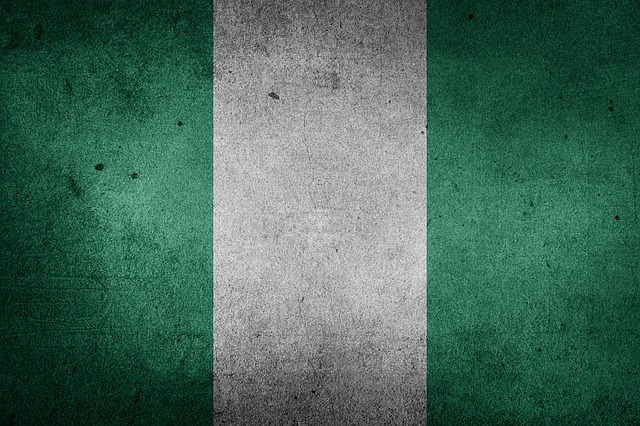By J.M. Phelps (One News Now)
While the media often ignore the growing threat to Nigeria’s future, nothing short of a special envoy sent by President Donald Trump may begin the steps necessary to end the ruthless attacks against Christians in that country.
Douglas Burton tells OneNewsNow he believes the African nation of Nigeria – the most populous on the continent – is experiencing a “dual crisis.” One is political and the other is military, says the journalist and former U.S. State Department official in Kirkuk, Iraq. Evidence of the political crisis, he explains, is best exemplified through their recent presidential election.
“[The 2019 election] has been disputed due to widespread observed vote-rigging, false voting, and invasion of the database,” Burton points out – adding that it’s not surprising that Atiku Abubakar, the losing contender, continues to dispute the results.
Despite the controversy, Muhammadu Buhari (pictured) was recently reelected as the president of Nigeria, maintaining the office he has held since 2015. As a retired Nigerian Army officer, he also previously served as the nation’s head of state in the 1980s.
According to Deji Smith,* a Nigerian who recently attained American citizenship, “[Buhari] claims to not be sympathetic to murderous radical Islamists, but the lack of response from his administration and military to the attacks says otherwise.”
Smith also states “at one time, late in the 90s, his political agenda reflected full support for the implementation of Sharia law” – then asks: “Did his views change for more than the purposes of winning the hearts and minds of the Christian?”
According to Burton, Buhari does desire for the “the Christian minority to acknowledge him, but [says] there is great resistance to it.” And the friction, Burton suggests, can be attributed to the long-standing problem of genocidal warfare against Christians in Nigeria.
Although Christians constitute nearly half of the Nigerian population (currently estimated at 191 million), Burton says “they are vastly outnumbered [by Islamic representatives] in the legislative part of the government.” Currently, he adds, there is administration of Sharia law in at least seven of the 36 Nigerian states.
Large-scale deaths attributed to Islamic extremism continue to riddle the nation. For example, a series of attacks in the north central state of Kaduna resulted in the loss of life of over 120 innocent civilians living in Christian communities since February. Burton says a radical Islamic group associated with the Fulani people, who are chiefly cattle herders, was allegedly responsible for the attack.
The journalist also points to attacks in the northeastern part of the country where, he says, “you’ll find the headquarters of the ISIS-affiliated insurgency called Boko Haram.” The “headquarters” is located near the far eastern edge of Nigeria – in a “big game refuge” called the Sambisa Forest, Burton describes.
Murderous attacks attributed to Boko Haram and the Fulani people have riddled the country for a several decades. Thus, the military crisis.
Although underreported, the combined political and military crises are quickly becoming “life or death issues” for the Christians, because “many of them fear that the nation is sliding toward Islamization under President Buhari,” according to Burton. “[Many Christians] fear the country will be an Islamic Republic in a few years – as they are headed toward complete marginalization.”
The former State Department official says the Trump administration has signaled it wants to stand for persecuted Christians all over the world. “This,” he adds, “is a significant departure from the position of the Obama administration.”
He believes the Trump administration will eventually appoint a special envoy to Nigeria, “because of the constant threat to minority believers of all kinds – not just Christians – but also to minority Muslims” such as the Shia and Sufi people.
“The Nigerian government needs a prod. It needs a push,” Burton attests. “Both the president and his chief contender are Muslims [and] they’re both from the Fulani tribe – which is guilty of numerous deprivations and terrible mass slaughters.”
Burton concludes a special envoy could “effectively” bring material aid, such as a team of advisors with the ability to bring military aid, intelligence resources, and surveillance. He believes the envoy would help Nigerians “tamp down” or “confront” the dual threats of both the radical herders in the north, as well as the Boko Haram insurgency in the far east – and in the process would usher in some much-needed peace and stability for Christians in Nigeria.
* “Deji Smith” is a fictitious name. This source asked his name to remain undisclosed because a member of his family has direct ties to the Nigerian government.
J.M. Phelps is a Christian activist and journalist based in the Southeastern U.S. He is also editor and publisher of the website Lantern of Liberty.
Originally published by One News Now on Tuesday, April 9, 2019.
This column is printed with permission. Opinions expressed in columns published by Lantern of Liberty are the sole responsibility of the article’s author(s), or of the person(s) or organization(s) quoted therein, and do not necessarily represent those of the staff or management of, or advertisers who support Lantern of Liberty.

